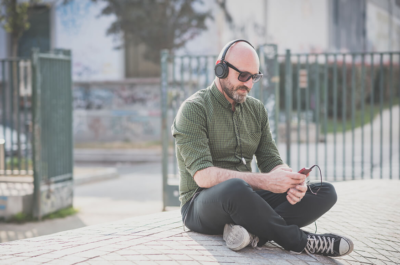
Credit: Adobe Stock
Too Old to Learn a Language? Don't Believe It
By Bill Ward for Next Avenue
Conventional wisdom holds that the older we get, the harder it is to learn a new language. Which is true — except when it’s not.
Turns out that while our brains might not be as quick or deft as in those halcyon days of youth, all that hard-earned experience, knowledge and discipline can come to the rescue.
Using Our Adult Knowledge to Learn a Language
“[Older adults] know more about culture, about how the world works, about how our native language works,” said Lisa Frumkes, senior director of content for Rosetta Stone, an education technology software company that develops language, literacy and brain-fitness software. “So we can build on these things. We also have to have discipline when learning a language, and that is something older people have more of. Knowing how to regulate your schedule, that’s 90 percent of the exercise.”
Other experts agree, pointing to learned skills such as a better grasp of syntax, grammar and pronunciation, plus a broader vocabulary in our native tongue.
Catherine Snow, a professor of education at the Harvard Graduate School of Education, has written that older adults are better at intentional learning and literacy skills.
High Expectations
The benefits of learning a language are enormous, but sometimes so are the barriers, starting with busy schedules and self-doubt (thanks in part to that old bugaboo, conventional wisdom).
“As we get older, we have much, much bigger expectations of ourselves,” Frumkes said. “We ask a lot more of ourselves, so we need to cut ourselves some slack. I think Americans also think there is something particularly difficult about learning a language. But it isn’t harder than learning to do anything at an older age, whether it’s calculus or golf. I see older people going out and learning the violin. No one tells them it’s hard to do that, even though they have less dexterity and learning how to read music is hard.”
The Brain’s Resilience
Even for those who have suffered cognitive decline, learning a language can be feasible.
Judith Campisi, a professor at the University of California at Berkeley’s Buck Institute for Research on Aging, said research on “chemobrain” (cognitive loss after chemotherapy) indicates that our brains are more resilient and adaptable than previously believed.
“When there’s a decline, the brain has the ability to call on other parts of the brain,” Campisi said. “We suspect that’s happening in aging, that the brain has more plasticity and we have better ability to draw on other parts of the brain. It could be that people learning a language are calling on other parts of the brain.”
Or, as Frumkes put it, “As long as you’re continuing to work your brain in a variety of ways, you will find things in your brain that you thought were gone that are still there. There’s a lot locked up in our brains that just needs to be shaken.”
Babies vs. Adults
That goes against the prevailing thinking from a half-century ago, which centered around a “critical period hypothesis:” that infants and toddlers effortlessly acquire language and that such learning becomes increasingly difficult after the first few years of life (dubbed “the critical period”).
A research paper called “The Older Language Learner” by University of Michigan education professor Mary J. Schleppegrell, a linguistics expert, put the kibosh on that notion: “Studies indicate that attaining a working ability to communicate in a new language may actually be easier and more rapid for the adult than for the child. Adults learn differently from children, but no age-related differences in learning ability have been demonstrated for adults of different ages,” the paper said.
Besides, as Frumkes noted, “When you learn something as a child, you’re not learning at a high level. It’s not as high a bar.”
Bilingual Benefits Abound
The ability to learn a new language varies — “everything like this is always individual,” Campisi said — and, not surprisingly, those who already are bilingual have advantages.
“It’s just as if you played tennis when you were younger, some other racquet sport will be easier to learn,” Frumkes said. “With bilingual people, knowing that words and phrases are not one-for-one and that word order works differently — that grammar works differently — really helps, because you know what things to look out for.”
Frumkes added that she’s not sure if there are gender differences for learning a language when you’re older. “There’s always been talk that women are better, but that may be more of a social construct rather than how we are biologically,” she said.
Changes in the Brain
Regardless, experts are absolutely convinced that whatever the gender, learning a language improves overall brain functions.
Recent research has found that bilingualism changes the brain structurally and functionally for the better and helps stave off dementia.
“Like physical exercise, the more you use specific areas of your brain, the more it grows and gets stronger,” said Ping Li, a Penn State University professor of psychology, linguistics and information sciences and technology and an author of one of the studies.
Enlarging Our World
In the end, immersing ourselves in another language at whatever age expands not only our minds, but our lives.
“Learning a language is about learning a culture,” Frumkes said. “It can take you in so many directions: literature, travel, learning to understand the news of the day or just being able to be in contact with people in other cultures. Once you think about these things, they change the way you see the world.”
© Twin Cities Public Television - 2017. All rights reserved.
